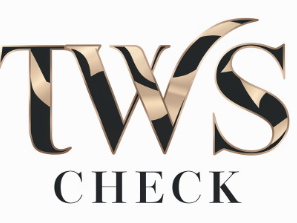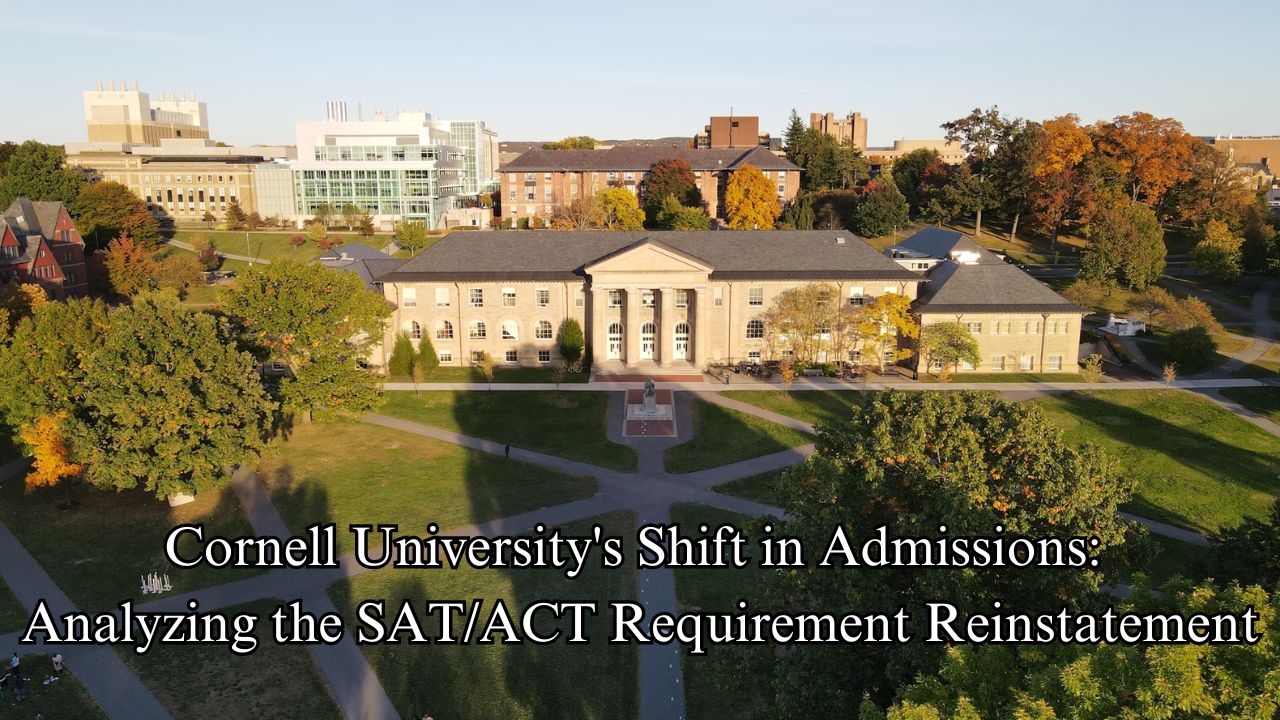Cornell University’s Shift in Admissions: Analyzing the SAT/ACT Requirement Reinstatement
Cornell University’s admissions landscape is taking a significant turn as it gears up to reinstate the SAT/ACT requirement for undergraduate admissions, starting from students applying for enrollment in fall 2026 1. This adjustment positions Cornell University at a pivotal junction in its admissions process, reflecting a broader examination within the landscape of higher education regarding the role of standardized tests in the common application process. The move, temporarily maintaining a test-optional policy for students applying for fall 2025 while encouraging the submission of scores, hints at the intricate balance Cornell aims to strike in assessing applicants amidst evolving educational norms 1.
This reinstatement is driven by insights from a comprehensive multiyear study spearheaded by the university’s Task Force on Standardized Testing in Admissions 1. The decision affects not only the Cornell University acceptance rate but also shapes the admissions strategy moving forward, setting a precedent within the competitive realm of Ivy League admissions. Interestingly, specific colleges within Cornell, such as the College of Agriculture and Life Sciences, the College of Architecture, Art and Planning, and the Cornell SC Johnson College of Business, will remain score-free for students applying for fall 2025, indicating a nuanced approach to the application of standardized testing requirements across different fields of study 1. This strategic shift in Cornell University admissions criteria signifies a critical moment of reflection and adjustment in the broader context of higher education’s valuation of standardized tests.
Background on Standardized Testing at Cornell
Varying Policies During the Pandemic
- During the COVID-19 pandemic, Cornell University implemented diverse testing policies across its colleges. Five colleges adopted test-optional policies, allowing students the choice to submit SAT/ACT scores, while three colleges went completely test-free, not considering standardized test scores at all in their admissions process 1.
Permanent Testing Policies and Superscoring
- Cornell University has established that it does not require the SAT essay section, which was discontinued in 2021, nor the ACT essay section. Additionally, the university practices superscoring, meaning it considers the highest scores from each subsection of the SAT and ACT when reviewing applications 2.
Test-Recommended and Test-Blind Policies
- For the fall 2025 enrollment, certain colleges within Cornell are designated as test-recommended, suggesting that submitting test scores is advised but not mandatory. In contrast, the College of Agriculture and Life Sciences, the College of Architecture, Art and Planning, and the Cornell SC Johnson College of Business have declared a test-blind policy, indicating that test scores will not be considered even if submitted 23.
Task Force on Testing in Admissions
- The Task Force on Testing in Admissions, established in May 2023, was tasked with evaluating the impact of these varied testing policies. The findings indicated that there was no significant increase in diversity among matriculating students due to the relaxed testing requirements. Moreover, data showed that students admitted with known test scores generally achieved better academic outcomes compared to those admitted without test scores 4.
Socioeconomic Factors and Standardized Testing
- The review also highlighted a strong correlation between standardized test scores and socioeconomic status, revealing that students from higher-income families are significantly more likely to achieve higher scores. This disparity is attributed to inequities within the educational system that affect standardized testing performance 5.
Future Directions
- Moving forward, Cornell University is conducting a two-year experimental review to better understand the role of standardized testing in admissions. This initiative aims to ensure that admissions decisions are made in a manner that considers the full context of each applicant’s background and academic potential 5.
Reasons for Reinstating Testing Requirements
Insights from the Task Force on Standardized Testing
- Comprehensive Applicant Profiles: The Task Force on Standardized Testing at Cornell found that standardized test scores, when viewed in conjunction with other application materials, provide a fuller picture of an applicant’s potential. This comprehensive approach helps in assessing a student’s capability for academic success at Cornell 1.
- Academic Performance Indicators: Data revealed that applicants admitted with their test scores generally achieved higher GPAs and maintained good academic standing more consistently than those without scores 1.
- Impact on Diversity: The study showed no significant increase in diversity among first-year students under the test-optional policy, suggesting that reinstating testing might not adversely affect diversity 7.
- Admission Likelihood: Applicants who submitted their test scores to Cornell’s test-optional colleges had a significantly higher chance of admission, indicating the positive impact of scores on admission decisions 7.
- Preparation and Fairness: The new policy aims to give future applicants sufficient time to prepare for and take standardized tests, ensuring all students can present their strongest application possible 8.
- Statistical Significance of Test Scores: Submitting test scores to test-optional programs significantly boosts an applicant’s chances of admission, highlighting the importance of standardized tests in the admissions process 9.
- Identifying Potential from Various Backgrounds: Standardized tests are particularly useful for identifying high-potential students from under-resourced high schools, offering a metric that can highlight abilities that may not be evident from other aspects of their application 10.
- Policy Reevaluation: The decision to reinstate testing requirements stems from concerns that some students might withhold scores that could otherwise benefit their applications. This change is intended to encourage all students to submit their scores, providing a more leveled evaluation field 7.
- Contextual Performance Analysis: The reinstatement is also based on evidence suggesting that students from underrepresented socioeconomic backgrounds might benefit from submitting scores that, while below the overall Cornell average, could be advantageous within the context of Cornell’s admission process 11.
Implications for Future Applicants
Standardized Testing Requirements from Fall 2026
- Mandatory Submission of Scores: Starting from fall 2026, all applicants to Cornell University’s undergraduate programs will be required to submit SAT or ACT scores, marking a significant shift from the test-optional policy of fall 2025 12.
- Impact on Application Strategy: This change mandates that students aiming for fall 2026 and beyond prepare adequately for these standardized tests, potentially altering their preparation timelines and strategies 12.
- Enhanced Academic Profile Analysis: By reinstating the testing requirement, Cornell aims to gain a more comprehensive view of an applicant’s academic abilities, which could influence admission decisions significantly 1.
Test-Optional for Fall 2025
- Voluntary Score Submission: For students applying for fall 2025, submitting SAT/ACT scores remains optional, though strongly encouraged by the university across all its colleges and schools 12.
- Flexibility in Application: This provides applicants with the flexibility to decide whether their standardized test scores accurately reflect their capabilities and should be included in their applications 12.
Role of Standardized Tests in Admissions
- Academic Success Indicators: Internal studies at Cornell have shown that students admitted with known test scores tend to achieve higher GPAs and maintain better academic standing 17.
- Contextual Evaluation: Cornell will continue to consider the broader context of each applicant’s educational background, personal circumstances, and other application materials, ensuring a holistic review process 2.
Policies for Specific Colleges in 2025
- Test-Blind Colleges: Certain colleges within Cornell, such as the College of Engineering and the SC Johnson College of Business, will not consider test scores for the fall 2025 admissions cycle, maintaining a test-blind policy 2.
- Test-Recommended Colleges: Other colleges like the College of Arts & Sciences and the School of Industrial and Labor Relations recommend but do not require test scores for fall 2025 applicants 2.
- Super Scoring: Cornell will superscore the SAT and ACT, considering the highest scores from each subsection, which can benefit applicants by allowing them to present their highest possible scores 2.
Long-Term Academic Planning
- Setting Target Scores: Applicants should determine their target SAT/ACT scores based on the specific requirements of the colleges they are applying to, especially as these scores play a crucial role in competitive admissions environments like the Ivy League 131415.
- Comprehensive Preparation: Beyond test scores, Cornell and other Ivy League institutions evaluate candidates based on a spectrum of criteria including GPA, extracurricular activities, and personal statements, emphasizing the need for well-rounded preparations 1315.
Comparison with Other Ivy League Institutions
Standardized Testing Policies Across Ivy League
- Similar Reinstatements: Cornell University aligns with Brown University, Dartmouth College, Harvard University, and Yale University, all of which have recently reinstated standardized testing requirements for admissions 7.
- Divergent Approaches: Contrasting with these institutions, Columbia University, Princeton University, and the University of Pennsylvania maintain test-optional policies, offering a broader spectrum of admissions strategies within the Ivy League 7.
- Test Acceptance: All Ivy League schools, including Cornell, accept both the SAT and ACT for admissions, demonstrating no preference for either test, which supports a unified approach in evaluating applicants’ testing options 16.
Superscoring Policies Among Ivy League Schools
- Brown University: Superscores SAT; considers highest ACT section scores but does not calculate a superscore 16.
- Columbia University: Superscores both SAT and ACT 16.
- Cornell University: Superscores SAT but not ACT 16.
- Dartmouth College: Superscores SAT; considers highest composite ACT score 16.
- Harvard University: Superscores SAT; considers highest composite ACT score 16.
- Princeton University: Superscores SAT; considers highest composite ACT score 16.
- University of Pennsylvania: Superscores both SAT and ACT 16.
- Yale University: Superscores both SAT and ACT 16.
This table illustrates the varied superscoring policies across the Ivy League, highlighting individual university preferences and practices that affect how applicants might strategize their testing and application process.
Support for Under-Resourced Students
Cornell University’s commitment to inclusivity and equity extends robustly to under-resourced students, particularly those who are first-generation or come from low-income backgrounds 23. The university has implemented a series of initiatives aimed at reducing institutional barriers and supporting the academic and professional development of these students.
Initiatives for Under-Resourced Students
- Presidential and Provost Task Forces: These task forces have generated over 60 recommendations to enhance diversity and inclusion, with more than 80% already implemented, reflecting a proactive approach in fostering an equitable campus climate 17.
- Belonging at Cornell Framework: This data-driven initiative aims to track and improve Cornell’s diversity and inclusivity, particularly within the College of Arts & Sciences, ensuring measurable progress in creating a welcoming environment for all students 1722.
- Comprehensive Student Support Programs: Cornell offers several programs through the Office of Academic Diversity Initiatives (OADI), which serves as a central hub for resources catering to traditionally underrepresented groups in higher education 21. These include:
- McNair Scholars Program
- Collegiate Science & Technology Entry Program (C-STEP)
- Cornell Professional Opportunity Program (CPOP)
- Diversity Programs in Engineering (DPE)
- First-Generation & Low-Income Student Support: The FGLI Student Support, part of the Dean of Students’ Center for Student Equity, Empowerment, and Belonging, provides targeted resources to alleviate challenges faced by FGLI students, empowering them to fully access and navigate Cornell’s offerings 23.
- Identity-Related Resources: Cornell provides various resources related to identity, such as the Africana Studies & Research Center, American Indian and Indigenous Studies Program, and the LGBT Resource Center, among others, to support a diverse student body in finding community and support on campus 20.
These initiatives collectively aim to honor Cornell’s founding principle of offering education to any person in any study, ensuring that all students, irrespective of their background, have the opportunity to succeed 19.
Conclusion
Cornell University’s decision to reinstate the SAT/ACT requirement for the fall 2026 applicant pool marks a significant pivot in its admissions strategy, underscoring its commitment to a comprehensive assessment of applicant potential. This move, informed by the extensive review conducted by the Task Force on Standardized Testing in Admissions, reflects a nuanced understanding of the role standardized tests play in forecasting academic success and diversifying the student body. By aligning its policies with a broader educational dialogue on equity and access, Cornell remains at the forefront of adapting to the evolving landscape of higher education, balancing tradition with innovation to meet the demands of a diverse and dynamic student population.
The implications of this policy shift are profound, serving not only to recalibrate the admissions process but also to signal to prospective students the enduring value of standardized testing as part of a holistic application review. As Cornell University ventures into this new chapter, it continues to champion a rigorous yet inclusive approach to admissions, ensuring that each candidate is assessed in the context of their unique experiences and potential. This evolution in policy attests to Cornell’s unwavering pursuit of excellence, equity, and opportunity, setting a precedent for how institutions can navigate the complex terrain of college admissions in the 21st century.
FAQs
Regarding Cornell University’s SAT/ACT Requirements
Q: Will submitting SAT scores be optional for applicants to Cornell University in 2024? A: Yes, Cornell University has extended its test-optional and score-free policies for undergraduate admissions for first-year applicants for Fall 2023 and Fall 2024, as announced by the Vice Provost for Enrollment.
Q: What is Cornell University’s testing policy for first-year applicants for Fall 2025? A: For students applying in fall 2024 to enroll in fall 2025, Cornell University will be test-recommended. This means that while submitting SAT or ACT scores is not mandatory, it is suggested for applicants to the College of Arts & Sciences, Cornell Engineering, College of Human Ecology, and Cornell Jeb E.
Q: Is the SAT a requirement for college admissions in 2024 more broadly? A: No, the SAT is not a universal requirement for college admissions in 2024. Over 1,900 schools have adopted test-optional or test-blind admissions policies for fall 2024 admission, as reported by FairTest, the National Center for Fair and Open Testing.
Q: What are the chances of being admitted to Cornell with an SAT score of 1450? A: While Cornell University does not have a strict SAT score cutoff, they typically look for scores of at least 1470. Therefore, an SAT score of 1450 may be below the range of what Cornell generally considers competitive.
Also Read :-
How Fintech Loans Are Revolutionizing the Loan Application Process
Find the Perfect QuickBooks Package for Your Small Business in 2024









